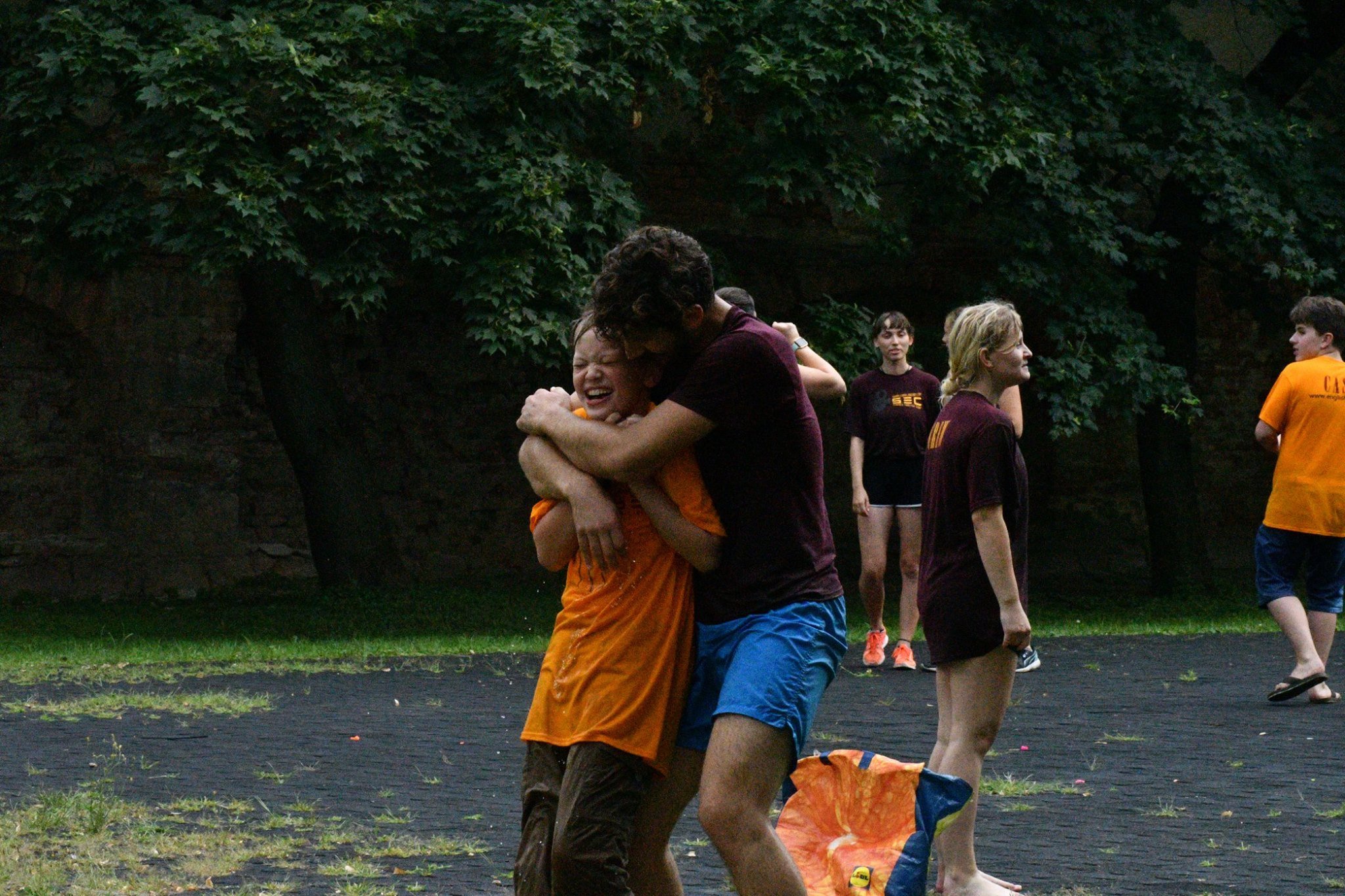What It Takes to Plan a Camp
One day I will remove the foot from my mouth.
When I arrived about a year ago, I got to Hungary just as the 2017 English camp was being cleaned up. My only context for camp came from the pictures and stories I heard from those who were there. So, of course, when the committee was formed to plan this year’s camp, with my abundance of “experience” and “wisdom,” I joined the team.
Pretty quickly, I realized I was out of my depth with planning an English camp. But did that stop me from suggesting things? No! I would prefer not to bore you with the details of every single meeting, so I will give you a quick overview of how the planning went.
I would throw out an idea and I would get three responses: 1) we have done that before and can’t repeat it, 2) we’ve done that before and it really doesn’t work, 3) or (and the very occasional) that could work. And when it came to figuring out English lesson curriculum, I learned to just keep my mouth shut.
The best thing about joining the planning committee, though, was seeing the heart of the people planning camp. There was an intention that every detail decided was not just to teach English, to give kids a good time, or to give an interesting experience to foreigners. No, every detail was a means to give glory to God and to care for the kids and volunteers who came to camp. This applied even to multiple designs of t-shirts and banners, and making sure the formatting was correct on worksheets and books for staff and students.
While kids and staff may not have noticed all of the details or fully appreciated how tough it is to craft curriculum, the intentionality mattered. As someone who was able to sit in on the meetings and hear/see how hard individuals worked, I could only be amazed. For example, finding reading exercises and music took hours, and many would probably say, I probably said, “Find one that works and move on.” However, when someone spends that time finding the perfect song for the first day of camp, you later hear stories of kids who heard that song and it perfectly fit their situation, opening up the door for great conversation. Or, as I personally witnessed, you get to participate in interesting conversations about what kind of influences the kids have in their lives because of a story about an actress in a reading exercise.
What amazed me even more was how a carefully-crafted framework for camp actually allowed for flexibility and quick changes when the situation called. Because of the heat of the basketball court and the dead grass surrounding it, we were unable to play a game with balloons one day. The team moved to the next game, which was shaving cream art. The students had to decorate their staff in shaving cream. This quickly turned into a shaving cream battle, which there would not have been time for had the balloon game occurred.
The purposefulness behind camp and the care put into every aspect set the tone for camp as a whole. We were not just going to do a camp that was good, we wanted to do a camp that was great. Being great meant that staff was put into positions to care for and engage with the kids on a deeper level. This is fun on the surface, but ventures much deeper when a student has hard questions about life or the staffer shares their testimony. The goal is that they will want to listen to each other.
For me, camp was not just a week in July, it was a year-long process of learning from a group of people who genuinely cared for and about kids



